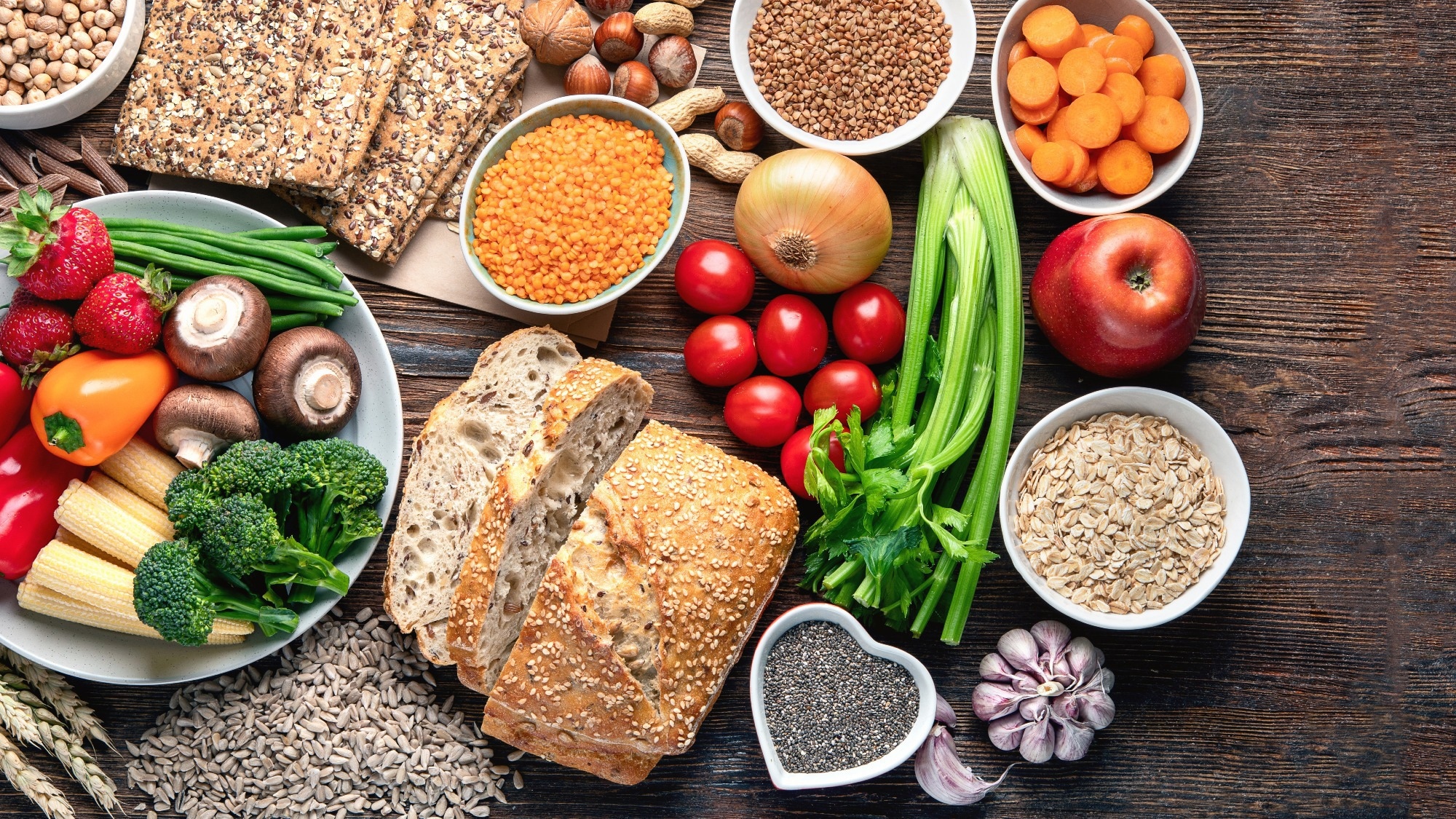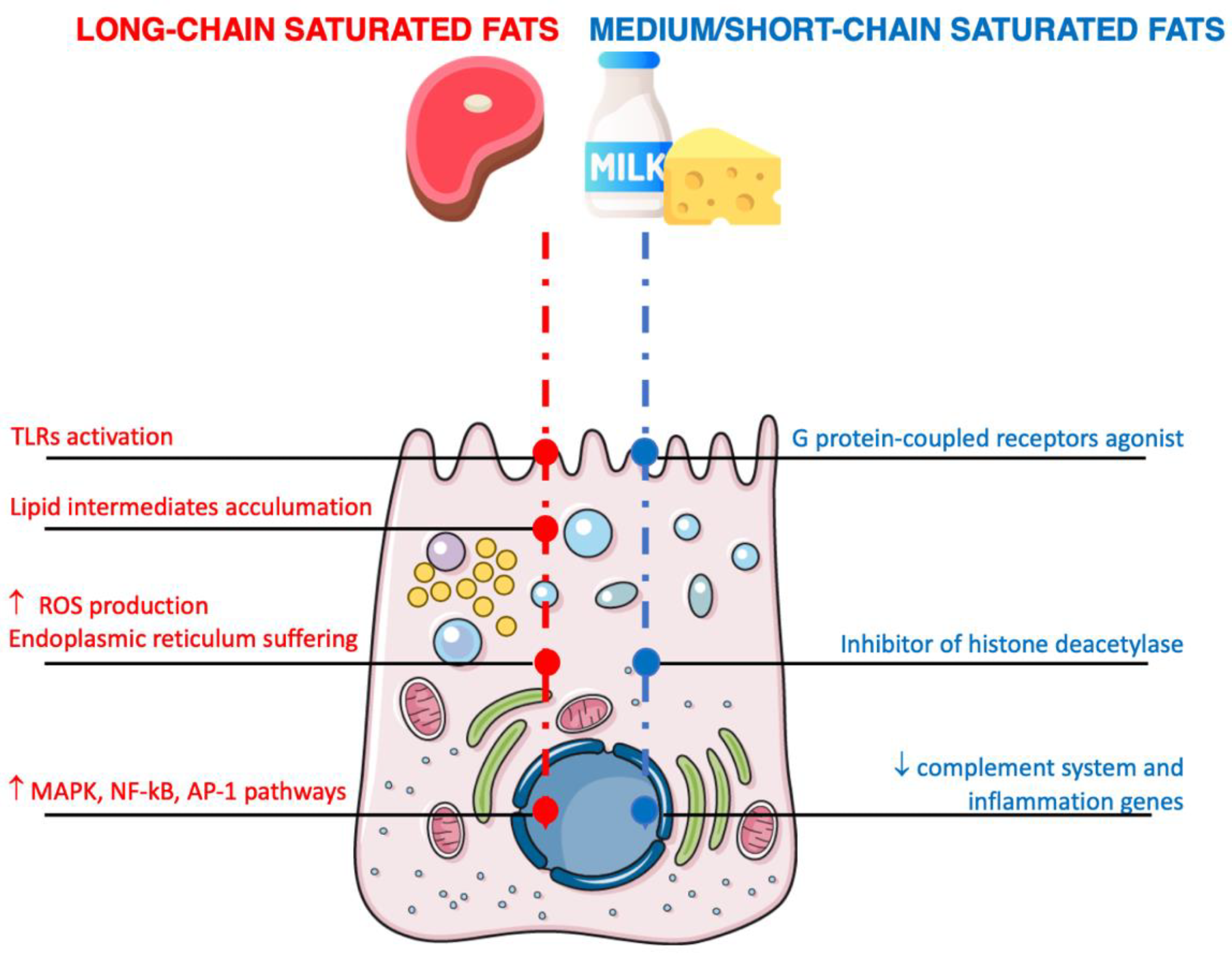For instance, a high intake of a plant-based diet, such as legumes, vegetables, fruits and whole grains, and dairy products, positively affects inflammation biomarkers. In contrast, the red meat and egg diet indicated a neutral effect. Scientists have recently reviewed the existing evidence to elucidate the mechanisms that connect the association between dietary factors and inflammation.
 Review: Anti-Inflammatory Nutrients and Obesity-Associated Metabolic-Inflammation: State of the Art and Future Direction. Image Credit: Tatjana Baibakova / Shutterstock
Review: Anti-Inflammatory Nutrients and Obesity-Associated Metabolic-Inflammation: State of the Art and Future Direction. Image Credit: Tatjana Baibakova / Shutterstock
Nutrition as a major determinant of health
Nutritional scientists have highlighted the importance of diet in maintaining a healthy life. To date, research is being conducted to understand the role of dietary components in the manifestation of low-grade inflammation. Nutrition is a complex process that involves various factors, such as the immune system, gut microbiota, and the brain's circadian cycles via various pathways, regulating an individual's homeostasis.
Chronic subclinical low-grade inflammation is an important factor associated with many conditions, such as cardiovascular diseases, certain tumors, and neurological disorders. Obesity plays a crucial role in the manifestation of low-grade chronic inflammation.
Low-grade inflammation influences insulin sensitivity leading to metabolic disorders. Furthermore, insulin resistance increases the inflammatory state due to the absence of insulin anti-inflammatory and vasodilatory effects. During a hyper calorific state, excess lipids are deposited in other organs, such as blood vessels, the liver, and skeletal muscles. This triggers pro-inflammatory mediators, systemic level recruitment of M1 macrophages, and monocyte differentiation to macrophage.
Plant-based foods, such as whole grains, fruits, and vegetables, are considered healthy due to their high nutritional values. These foods contain high vitamins, fibers, and phytochemicals, which impact the human immune system by decreasing inflammation.
Different macronutrients affect the inflammatory state differentially. For instance, an isocaloric intake of proteins, glucose, and lipids promotes the induction of intracellular oxidative stress. Fats are considered as highest, and proteins are the lowest inducer of inflammation. Carbohydrates are essential for the development of a healthy immune system.
How do dietary factors mediate inflammation?
Previous studies have highlighted that postprandial rise in response to oxidative stress and inflammatory biomarkers affects the physiological process which might occur post-food ingestion. After food consumption, the mitochondrial emission of hydrogen peroxide (H2O2) leads to a decrease in cellular glutathione (GSH) content and an elevation in reactive oxygen species (ROS) generation.
These conditions establish a higher oxidized redox state, activating transcription factors (e.g., NF-kB) to elicit pro-inflammatory genes. Some of the genes that are subsequently upregulated are inducible nitric oxide synthase (iNOS), pro-inflammatory cytokines (e.g., interleukins-ILs, interferon-gamma-INF-gamma, tumor necrosis factor-alpha -TNF-alpha), cyclooxygenase-2 (COX-2) and chemokines (such as MCP-1, IL-18, RANTES, MIP-2, CXCL1, CXCL10).
Dietary patterns may lead to acute or chronic gut microbial modification. Gut microbial dysbiosis, particularly lowering Bacteroides and increasing Firmicutes in the gut microbe population, causes activation of the Toll-like receptor (TLR) signaling pathway and enhancement in permeability to endotoxins, such as lipopolysaccharides (LPS).
 Mechanisms of action related to the effects of the inflammatory pathways of saturated fatty acids on intestinal cells. Arrows denote increment/increase or decrement/decrease.
Mechanisms of action related to the effects of the inflammatory pathways of saturated fatty acids on intestinal cells. Arrows denote increment/increase or decrement/decrease.
As a result, LPS translocation occurs in the circulatory system through the absorption of dietary factors or compromised enterocyte tight junctions.
LPS translocation activates pro-inflammatory pathways, i.e., NF-kB and mitogen-activated protein kinase (MAPK), which ultimately release inflammatory mediators. The rise in the inflammatory mediators activates hepatocyte expression and produces C-reactive protein (CRP), a marker of subclinical chronic inflammation.
CRP circulation levels are markers for risks associated with cardiovascular disease mortality, neurodegenerative disorders, and certain cancers. Plant foods, such as legumes, soy, and pulses, neutralize CRP levels, while dairy products reduce CRP levels.
It is vital to assess how individual foods impact inflammation. Healthy dietary patterns, including the Mediterranean diet and the Dietary Approaches to Stop Hypertension trial (DASH) diet, cause a decrease in CRP levels compared to unhealthy foods.
Some studies have shown that a vegetarian or even vegan diet reduces CRP levels compared to an omnivorous diet. Compared to a low-carbohydrate diet, a low-fat diet has a stronger impact on CRP levels. These studies have indicated the importance of macronutrient balance in the diet.
Most studies have preferred a plant-based diet over an animal diet to lower inflammation levels based on serum CRP levels. High intake of dietary fiber decreases CRP levels in diabetic individuals. Furthermore, it reduces IL-6 and TNF-alpha levels substantially.
Conclusions
Scientists across the world are currently investigating the role of diet in inflammation. For instance, a high-fat diet enhances the CRP level significantly compared to a diet rich in carbohydrates. Most studies have indicated that some dietary factors affect the immune system and mediate chronic systemic inflammation.
Even though obesity-related inflammation is an important factor that determines chronic subclinical inflammation, alteration in the immune system can be achieved through dietary changes, which can significantly reduce the risk of non-communicable diseases. In humans, consuming plant-based foods and dairy products promotes anti-inflammatory effects.
Journal reference:
- Grosso, G. et al. (2022) "Anti-Inflammatory Nutrients and Obesity-Associated Metabolic-Inflammation: State of the Art and Future Direction", Nutrients, 14(6), p. 1137. doi: 10.3390/nu14061137, https://www.mdpi.com/2072-6643/14/6/1137